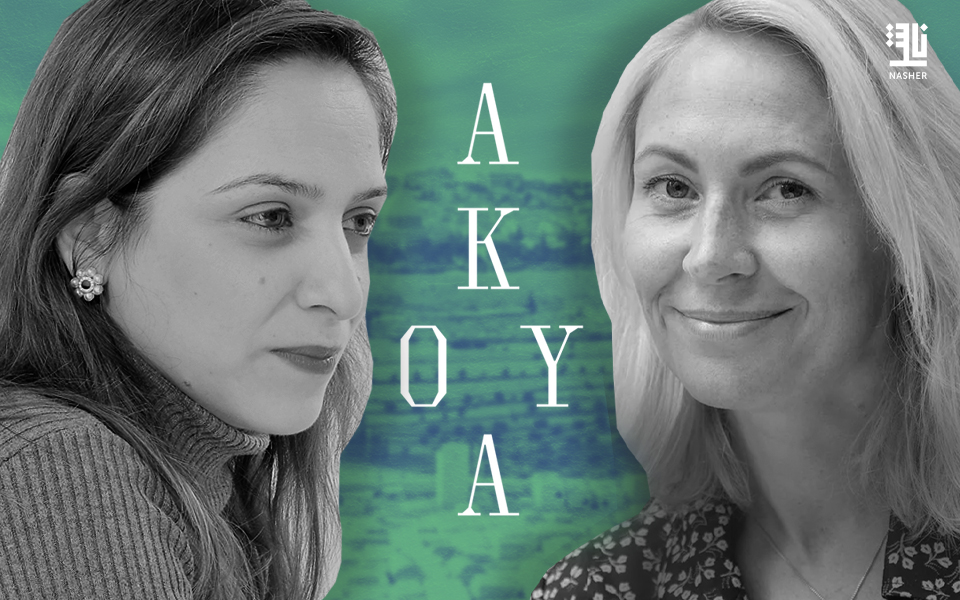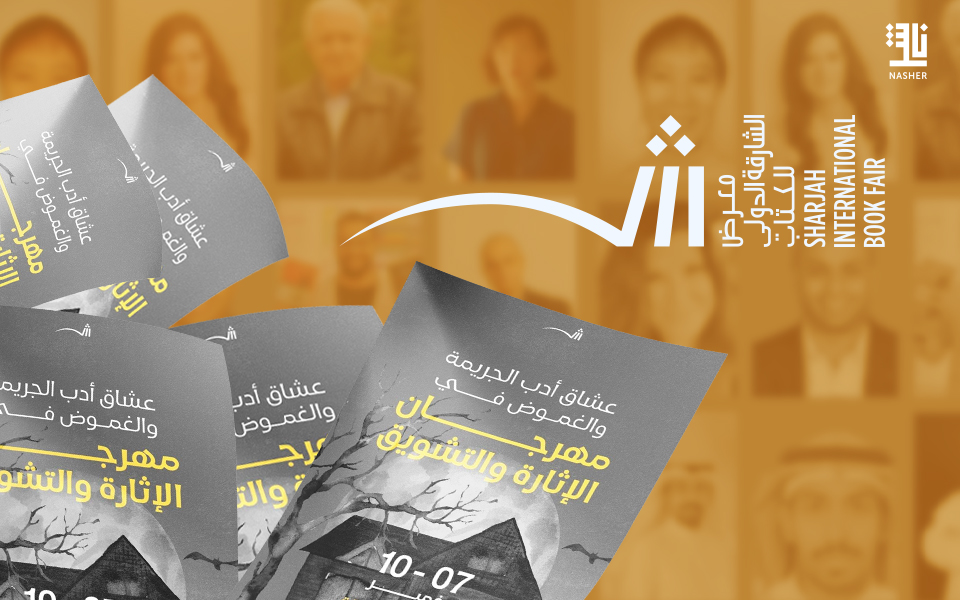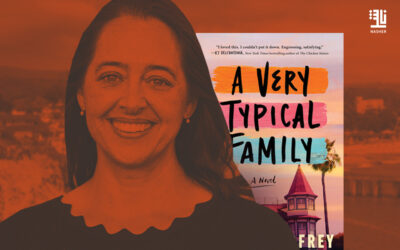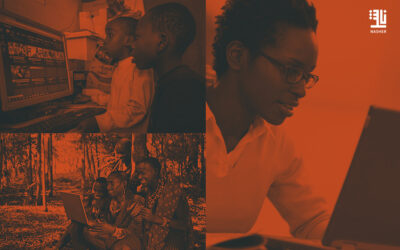Bodour Al Qasimi, Founder and President of the Emirates Publishers Association, moderated a panel discussion at the fourth edition of the Arab Publishers Association (APA) Conference held recently in Tunis. Themed Censorship in the Arab World: Restrictions Imposed on Cultural Expression and Its Impact on Creativity, the panel was led by Tunisian author Dr. Shukri Al Mabkhout, winner of the International Prize for Arabic Fiction 2015 for his novel Al Talyeni (The Italian); Lebanese writer Eman Hmaidan, author of Ba methl Beirut (B for Beirut); Egyptian author and poet Ahmed Al Shahawy and Kristenn Einarsson, Head of Freedom to Publish Committee at International Publishers Association (IPA).
Kristenn Einarsson opened the discussion by speaking about his role at the IPA, highlighting how it worked to prevent censorship in publishing. “The International Publishers Association is committed to defending and promoting the freedom to publish and as we all know this is something that is under siege worldwide today. Our organisation believes that the unique contribution of publishers to enable freedom of expression, debate and dialogue by disseminating the works of others really deserves recognition and protection,” he said.
Einarsson went on to describe the IPA’s four-pronged strategy to tackle the issue of censorship, citing how it had formally protested United States President Donald Trump’s attempts to ban publication of Fire and Fury: Inside the Trump White House, an exposé written by American author and journalist Michael Wolff.
“The committee works in four ways. Firstly, we help our members to fight for the freedom to publish. We can support them through advice and by direct lobbying when laws that threaten freedom to publish are proposed. We do this in concert with other non-governmental organisations. Secondly, we challenge violations of freedom to publish all around the world. We raise the alarm when publishers and writers are in danger and we support them when they face wrongful prosecution. In the last year, we issued statements in more than 20 countries and today we issued a hard press release against Mr. Donald Trump in the USA because he is trying to stop the publication of the book Fire and Fury. Thirdly, we try to drive the dialogue on freedom to publish and therefore I am very happy to see that you decided to have this discussion at your conference today. And the fourth pillar is celebrating the freedom to publish champions and we do that through the Prix Voltaire prize, which we award at the annual IPA meeting – the next of which is at the IPA world conference in Delhi in 2018,” he said.
Analysing the situation in his home country of Egypt as well as the wider Arab world, Ahmed El Shahawy spoke about the terrible realities of the silencing of journalists and writers, with death a very real possibility. “In Egypt, censorship is practiced on a daily, weekly and monthly basis. Arab countries top the headlines of international news bulletins regarding banning and confiscation of books or trial of writers and sentencing them to months or even years in jail. Even worse, some writers have been killed because of their books. This has happened in Egypt,” he said.
El Shahawy continued by saying that the issue wasn’t just one restricted to the world of publishing, going on to criticise those who he said were responsible for imposing censorship in his country. “Freedom in the Arab world is not just an issue the novelist or a poet, there is a limited freedom in our countries in general. Censorship is practiced by not only by Arab governments, but by society and religion, where we see different frustrating forms of censorship and the domination of religious bodies. For instance, in Egypt we have the Islamic Research Complex, which comprises 58 members; most of whom do not read and do not understand literature and the novel. These members might have read their most recent book when they were studying MA and PhD programmes and they have no current relationship with literature. These members are the ones who issue rulings considering a writer of being a disbeliever or not a Muslim,” he said.
Dr. Shukri Al Mabkhout, a Tunisian university administrator who won the International Prize for Arabic Fiction for his debut novel, The Italian, spoke about how there was a temporary ban on his novel in the UAE. He highlighted that the person who had imposed the restriction was a friend of his and that the ban had been lifted thanks to the intervention of Bodour Al Qasimi. Dr. Al Mabkhout discussed how moral attitudes and social mores change over time, citing a classic 19th century work that had initially been banned.
“Any censoring body believes that it has a duty to protect society. However, this practice changes with time and with the changing attitudes of those who are in charge of censorship. For example, when the novel Madame Bovary was published in 1850s it ignited moral outrage and was banned on the grounds of obscenity and violation of community ethics, customs and traditions. Now anyone who reads the novel finds nothing wrong with it. This reflects the change of mindset and people’s attitudes over time. This is exactly what my friend had thought when he banned my novel – he believes that what he did was for the protection of society,” he said.
Lebanese writer Eman Hmaidan, President of the Lebanon Section of Pen International, used the discussion to speak about her organisation’s campaign to promote literature and in her country’s public schools, saying that they didn’t have the same relationship with the cultural landscape as its private schools.
“Our objective was to visit public schools outside the capital in the North and South in order to launch a programme titled ‘Read to Me,’ which we started in 2015. The programme features school visits by authors whose titles are not included in school educational curricula and which are not among the literature learned at secondary schools. We try to present authors who are not yet accredited as renowned literary personalities because they have different voices that address the realities much more boldly, even aggressively. The schools’ administrations cooperated with us because public schools have hunger for culture with many of them not having libraries. This is why we are trying to support them,” she said.
Censorship in the Arab World: Restrictions Imposed on Cultural Expression and Its Impact on Creativity concluded with Bodour Al Qasimi asking the panelists how it could be possible to secure more freedom of expression and intellectual creativity in the Arab world. In response, Ahmed Al Shahawy said that on a personal level he strived to expose the hypocrisy and the conspiracy that is plotted against publishing and creativity in the Arab world, stating that any ban is a loss for both the writer and publisher. Shukri Al Mabkhout expressed his belief that writers should continue their struggle with controllers, admitting that the struggle is painful, but also saying that it is thrilling because it increases the level of freedom and changes mentalities and prevailing misconceptions. Eman Hmaidan made a recommendation that her country, Lebanon, set up an observatory for to follow up on the Arab world’s authors and writers and also decried as ‘nonsense’ the assertion from Arab dictators and regimes that international institutions such as Amnesty International and the Society for Human Rights were spies. Finally, Kristenn Einarsson suggested that there should be less self-censorship, as this is currently being practiced not only by authors and publishers, but also by bookstores and libraries.







